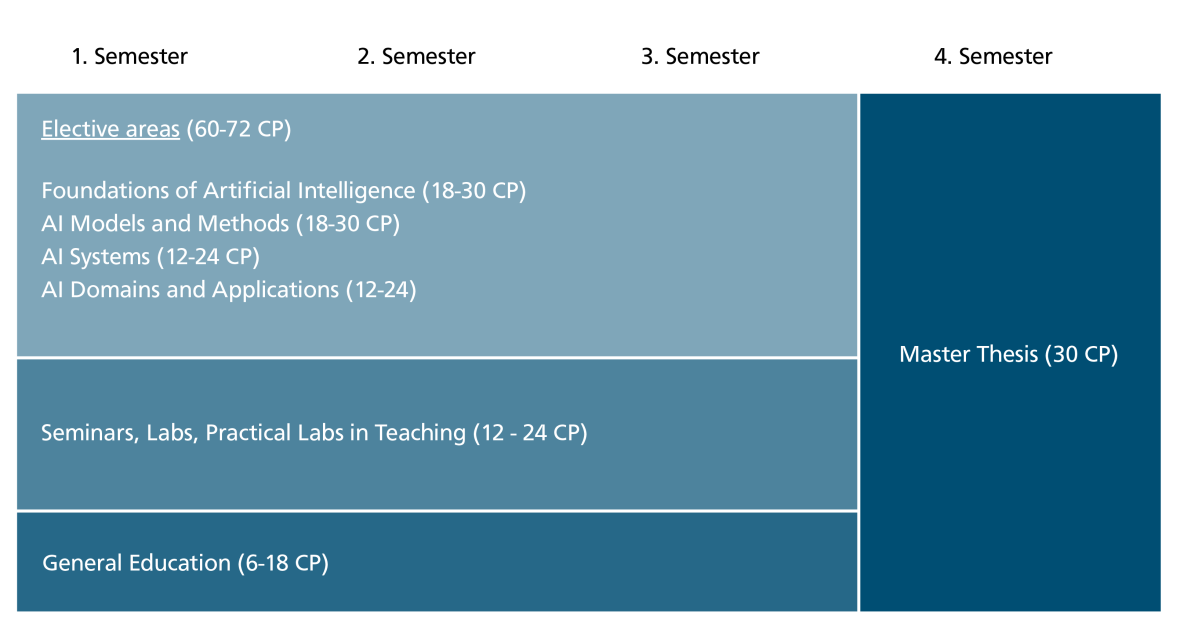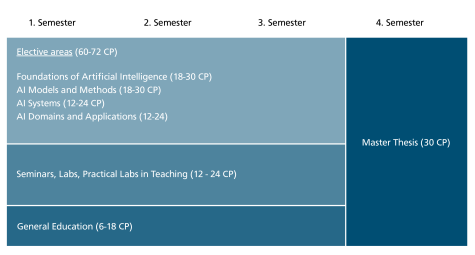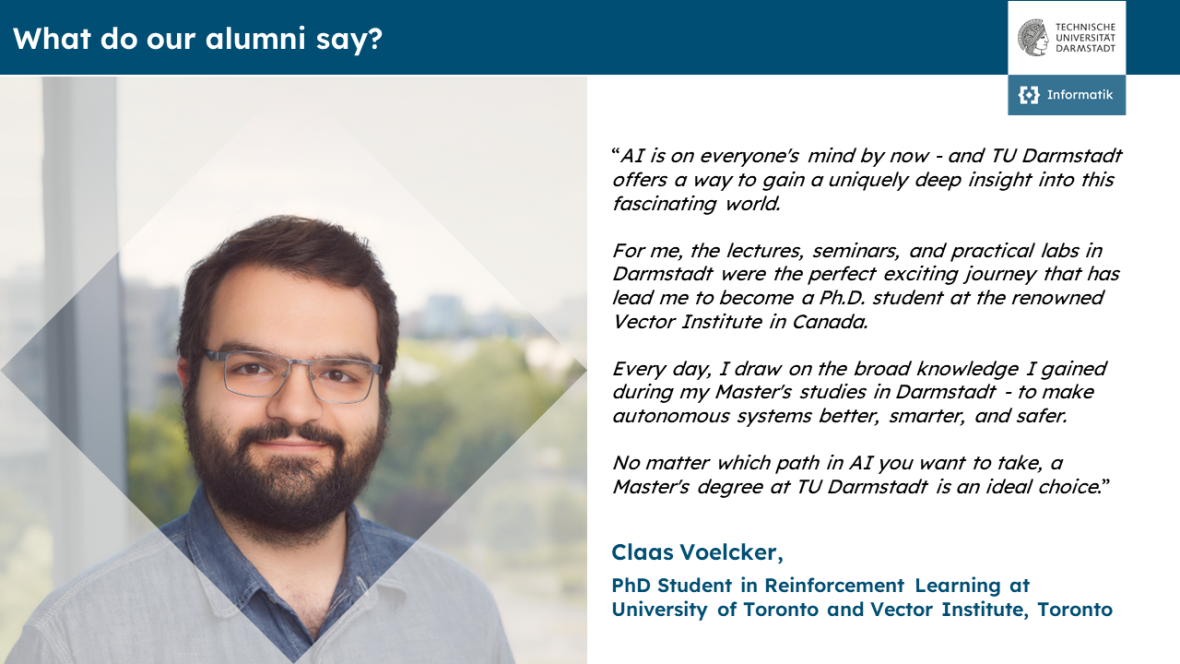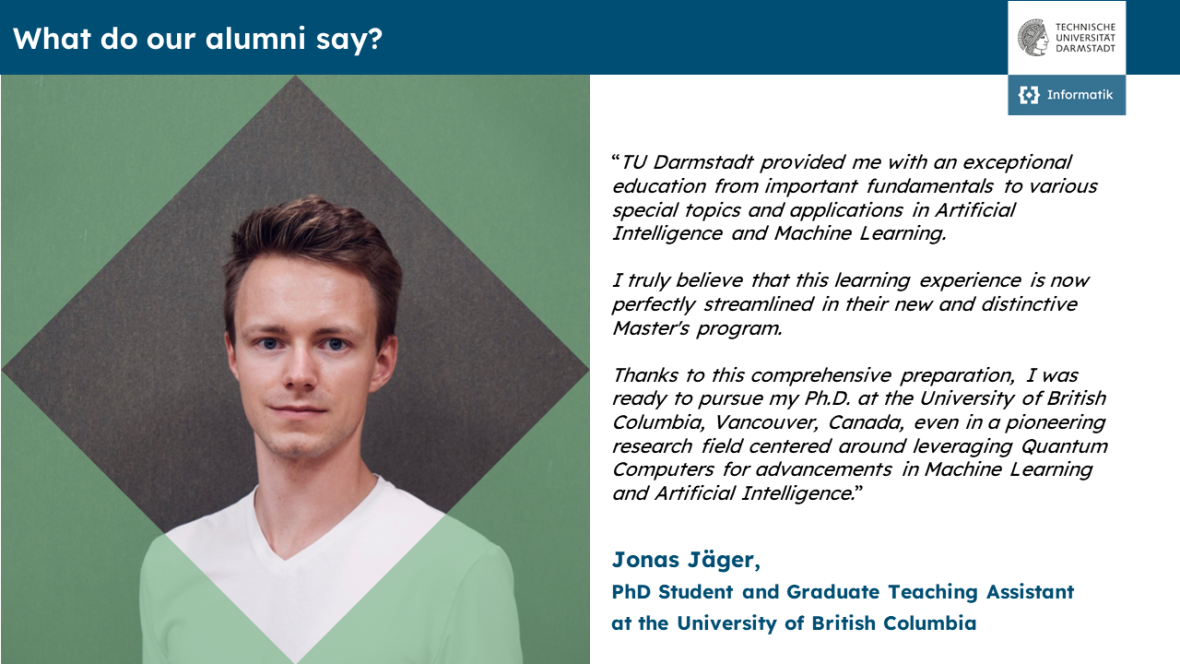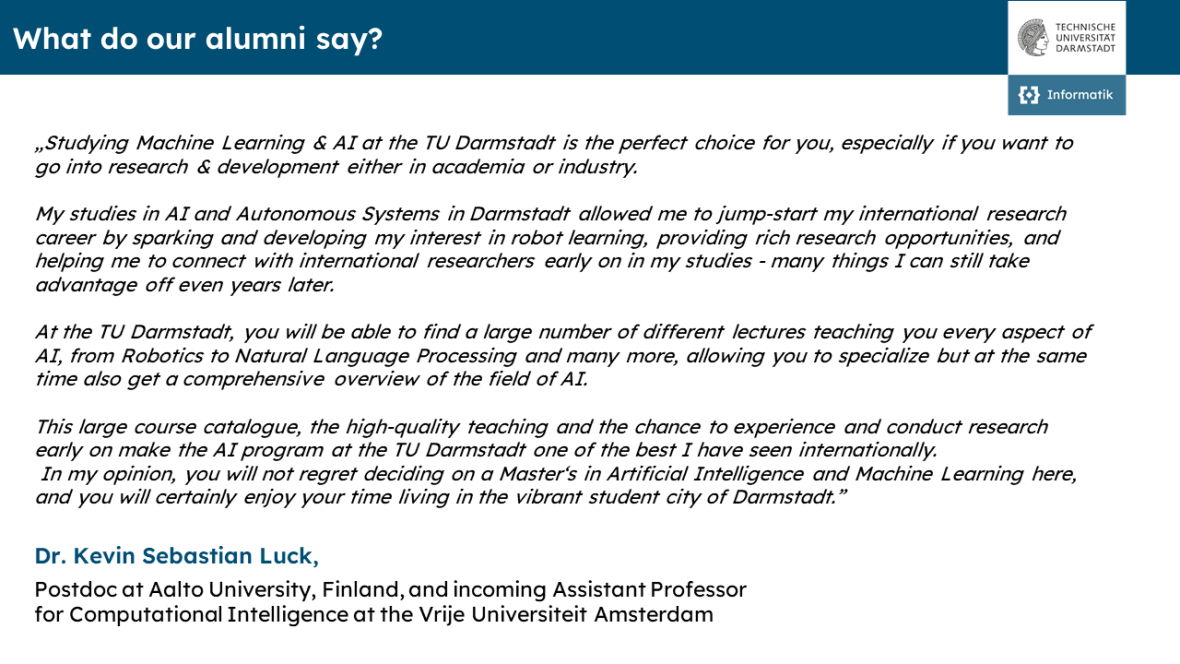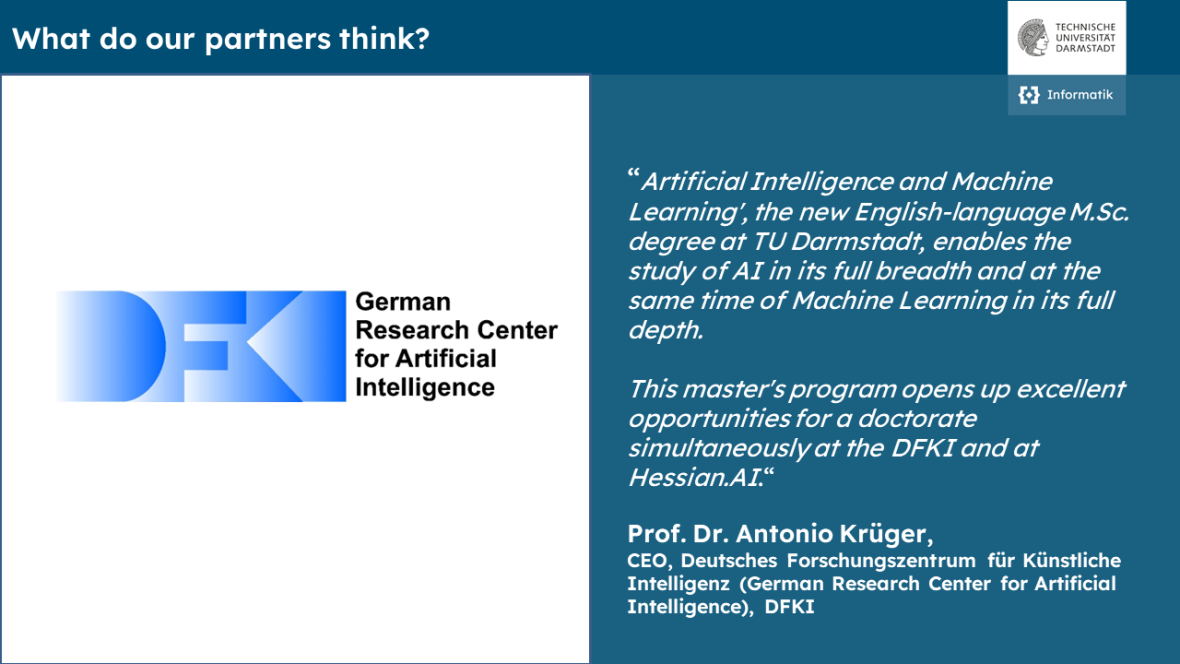The main part of the Master's program consists of electives from four areas, which are divided into
- an area of fundamentals (Foundations of Artificial Intelligence),
- an area of advanced models and methods of artificial intelligence and machine learning (AI Models and Methods),
- an area of challenges in the development of real AI systems (AI Systems)
- and an area of application-oriented courses (AI Domains and Applications).
Students must take courses from all areas.
In addition to a range of seminars and labs, students can prepare for a final Master's thesis at an early stage through larger, possibly multi-part projects.
Set individual priorities
Students have a great deal of freedom in designing their study plan and can thus pursue their individual interests. The elective areas ensure that students acquire the necessary basic knowledge as well as the specialist knowledge and competences essential for the program.
Practice-oriented
A great strength of the program are the integrated projects and labs. Here, students have the opportunity to participate in challenging projects in cutting-edge international research.
Below you will find the exemplary course of studies. More detailed information on study and examination plans can be found under “Regulations” at the bottom of the page.



